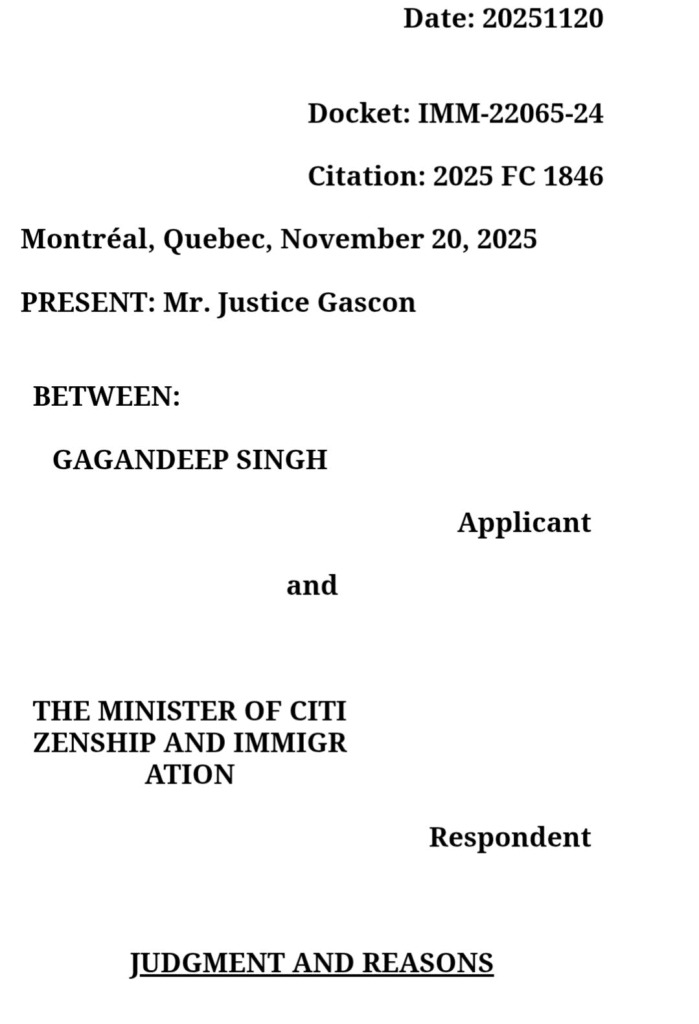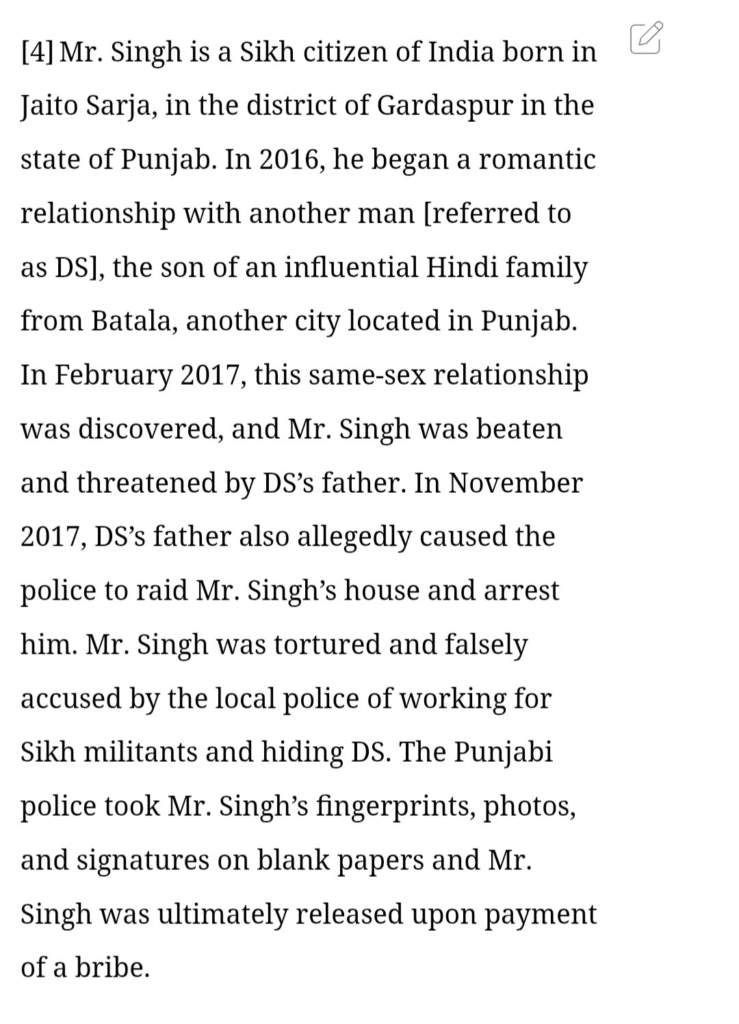AI Generated Summary
- Canadian immigration authorities have denied an asylum application submitted by Gagandeep Singh, an Indian national who entered the country on a student visa and later sought refugee protection, citing alleged persecution in India due to his sexual orientation.
- While advocacy groups continue to stress the importance of safeguarding genuine refugees, policymakers argue that tightening procedures is essential to preserve the integrity of Canada’s immigration system and ensure that protection is granted only to those genuinely at risk.
- The decision comes at a time when Canada is intensifying its review processes in response to a growing number of asylum claims that officials believe may exploit humanitarian provisions for immigration purposes.
Canadian immigration authorities have denied an asylum application submitted by Gagandeep Singh, an Indian national who entered the country on a student visa and later sought refugee protection, citing alleged persecution in India due to his sexual orientation.

Singh, who has reportedly been associated with pro-Khalistan extremism, claimed that his safety was under threat in his home country, arguing that his sexual orientation and views exposed him to harassment and potential harm. However, Canadian officials concluded that the evidence provided were not true, and under the country’s asylum and refugee protection laws, denied him asylum.

The decision comes at a time when Canada is intensifying its review processes in response to a growing number of asylum claims that officials believe may exploit humanitarian provisions for immigration purposes. According to immigration experts, authorities are increasingly cautious about applications that appear to rely on unverifiable claims of persecution.
Government sources indicate that the broader context includes concern over individuals entering Canada through temporary visas and subsequently applying for asylum on grounds that are later deemed insufficient or misleading. This has prompted calls for stricter screening measures and more robust verification protocols.
While advocacy groups continue to stress the importance of safeguarding genuine refugees, policymakers argue that tightening procedures is essential to preserve the integrity of Canada’s immigration system and ensure that protection is granted only to those genuinely at risk.
Canadian immigration authorities maintain that each case is evaluated independently and in accordance with international refugee protection standards.




